Agriculture is Iowa’s Slam Dunk
March 14, 2023
Brock Johnston, Iowa Soybean Association
Professional basketball and agriculture take the court in a new partnership with the Iowa Wolves that’s sure to be nothing but net!
Agriculture is one of the world’s largest industries – employing more than 1 billion people and producing trillions of dollars in food annually. Despite agriculture’s role in providing the food, fuel and fiber used by a rapidly growing population, a stark “farm-to-table” knowledge gap continues to exist between many rural and urban communities.
The Iowa Food & Family Project (Iowa FFP), the Iowa Soybean Association (ISA) and the Iowa Wolves, the Des Moines-based NBA G League team, are making strides to shrink this divide by taking agriculture’s story to places more familiar to consumers, including the sports arena.
To launch the collaboration, Iowa soybean farmers joined Wolves players, coaches, and staff on Feb. 2 for a John Deere Des Moines Works (JDDMW) tour in Ankeny.
Lisa Obrecht, an ISA farmer member and soybean grower from Zearing who participated in the tour with her father David and son Blake, says allowing consumers to connect directly with farmers and their families greatly impacts the public’s knowledge of where their food comes from.
“Whether it’s by participating in a factory tour, learning about the tools and machinery farmers use to produce and harvest food or simply looking into where your food is coming from, these small steps can be powerful ways to impact perceptions of agriculture,” Obrecht says.
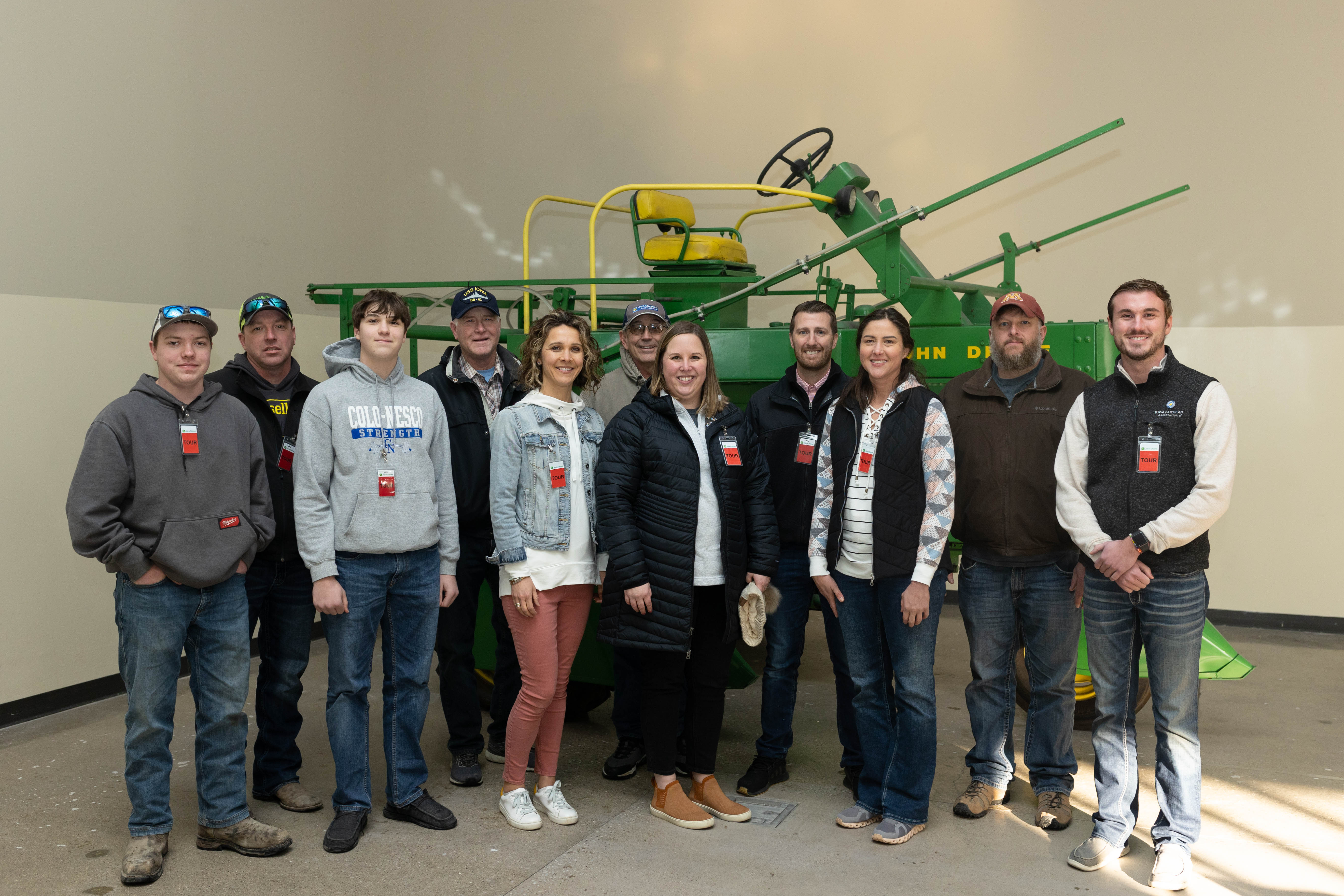
Through the Decades
Deere & Company, the world’s largest manufacturer of farm machinery, purchased the Des Moines Works facility in 1947 from the U.S. Department of Defense (DOD). The DOD originally constructed and operated the site for use as an ammunition production facility during World War II.
Today, the complex sprawls over 600 acres. It is a world-class manufacturing site producing a wide range of farm machinery, including cotton harvesters, self-propelled sprayers and grain drills (equipment used to sow seeds into the soil at a specific depth). Although grain drills and planters are both seeding equipment, a planter is more suitable for planting larger seeds, like soybeans and corn. For small cereal grains like wheat, oats and rye, farmers will often use a grain drill.
Celebrating Innovations in Agriculture
On the tour, players and farmers were carried on a guided tram through many of the site’s large assembly line manufacturing buildings. Here, the group received an up-close view of the assembly lines – watching as equipment components were guided into place and bolts were tightened.
As technology progresses, robotic processes in welding and other areas have been introduced to improve human safety and increase factory efficiency. The group saw these advancements firsthand as welders worked at stations alongside their robotic counterparts on the assembly line floor. State-of-the-art technology was also present on the equipment itself, including John Deere’s newest “See and Spray” device mounted on a sprayer. The technology is comprised of mounted cameras that allow farmers to identify harmful weeds emerging in the field from the comfort of their sprayer. Using this technology will not only manage invasive weeds that harm crop production but also allow farmers to target pests more precisely and impact herbicide use.
The group also saw machinery parts being coated in the company’s signature John Deere Green paint – a process that turns the equipment into some of the world’s most easily recognizable farm products. Of their many innovations, John Deere’s filtration technology in the painting room pulls excess paint particles from the air and recycles them for future use.
“It was great to see professional basketball players, who are everyday consumers themselves, gathered alongside Iowa farmers and their families to celebrate innovations in agriculture and build relationships,” adds Obrecht.
Connecting through Food
Following the tour, attendees shared a meal at the Machine Shed Restaurant in Urbandale. Rochelle Gilman, director of nutrition and health promotions at the Iowa Beef Industry Council, joined the group for a presentation on beef nutrition and cooking preparation.
“Knowledge is power, and when we succeed in learning something new, we feel more confident in ourselves and our decisions. That’s how we want consumers to feel when learning about the quality foods produced in Iowa and their many benefits,” adds Obrecht.
For the Wolves players, many of whom are from around the world, the tour and dinner served as some of their first real exposure to agriculture.
“It was fascinating to hear the connections being made as we discussed the adverse effects of drought conditions on crops, new technologies coming into the marketplace and the overall importance of agriculture to the world,” says Chip Albright, vice president of marketing and business development for the Iowa Wolves.
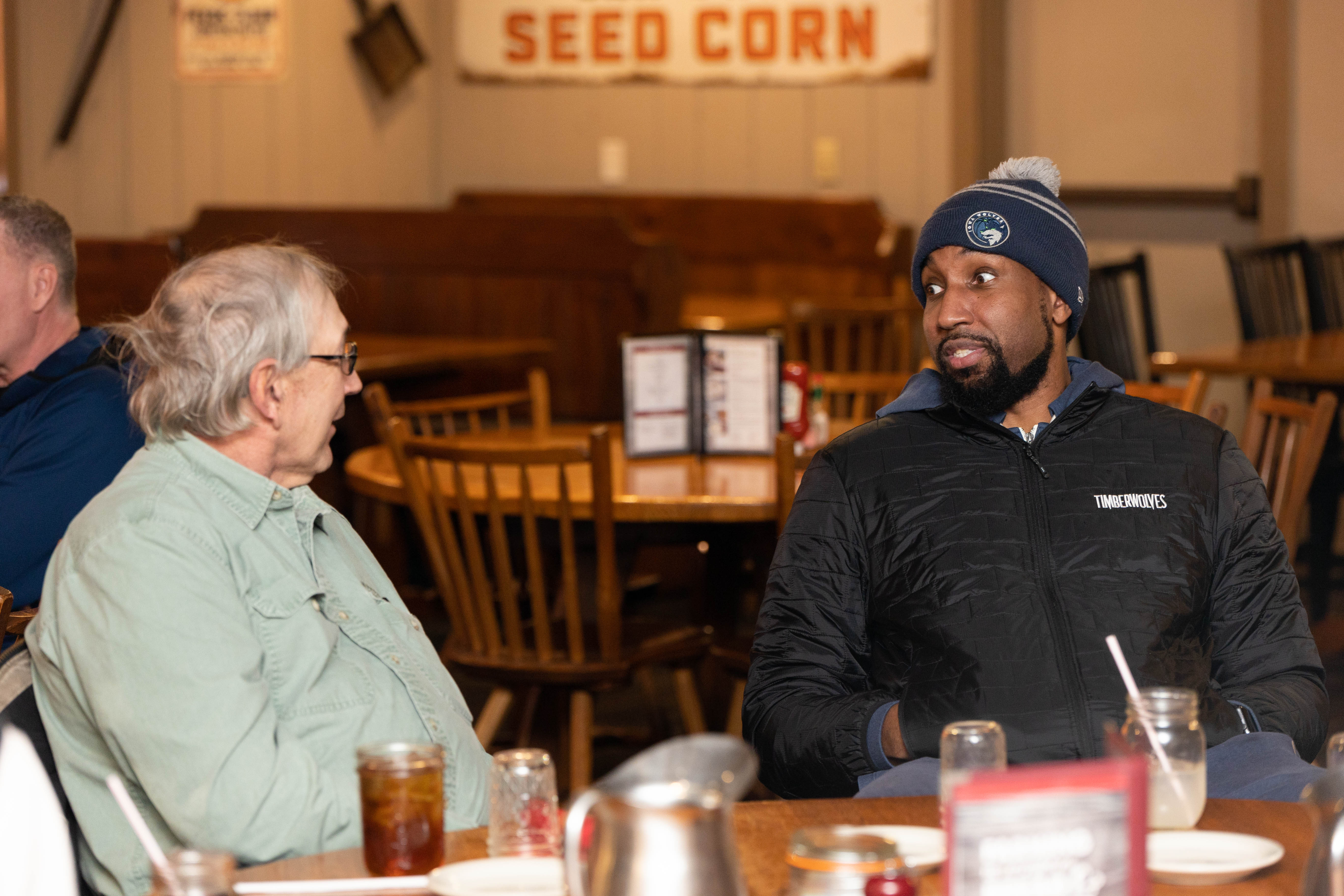
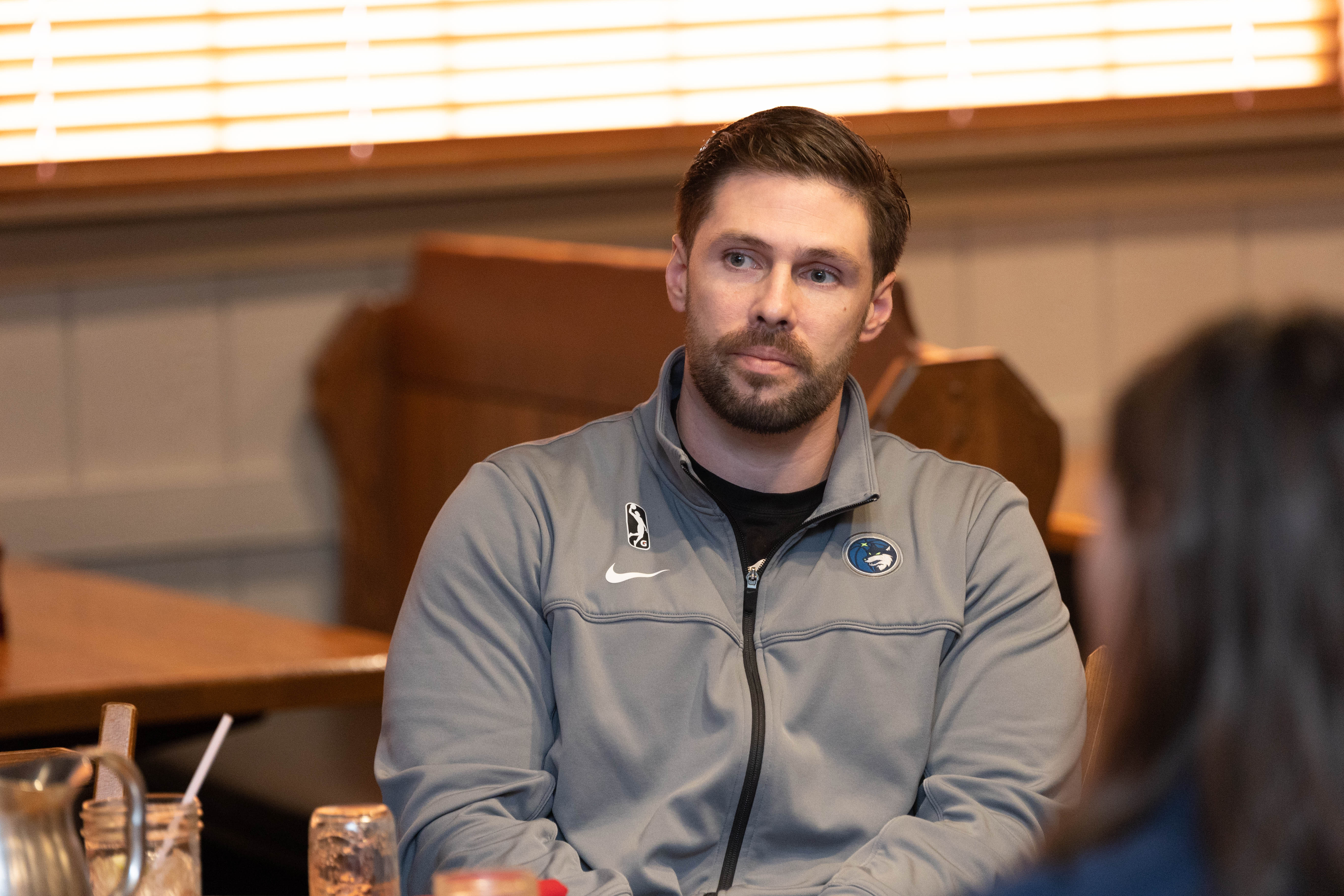
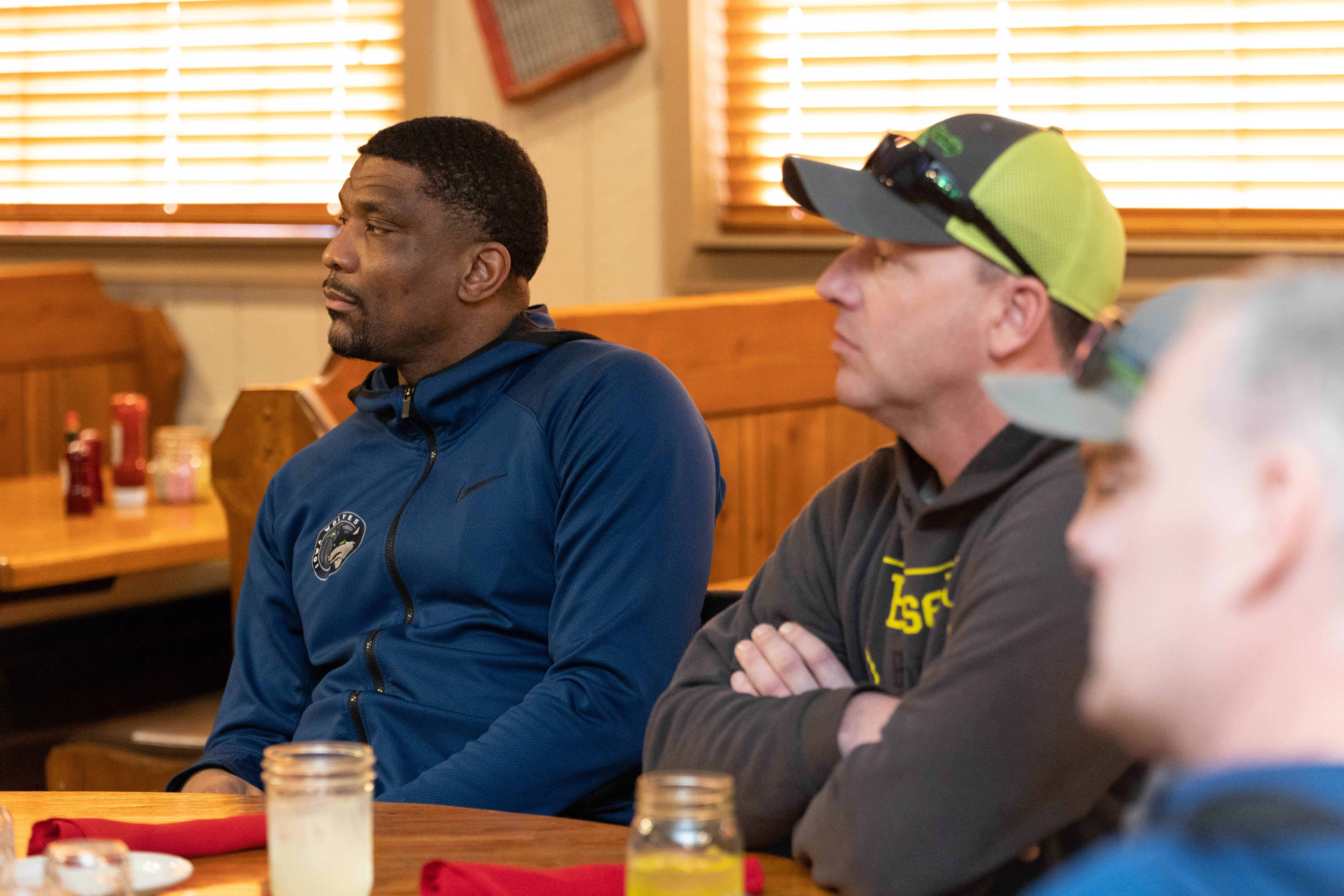
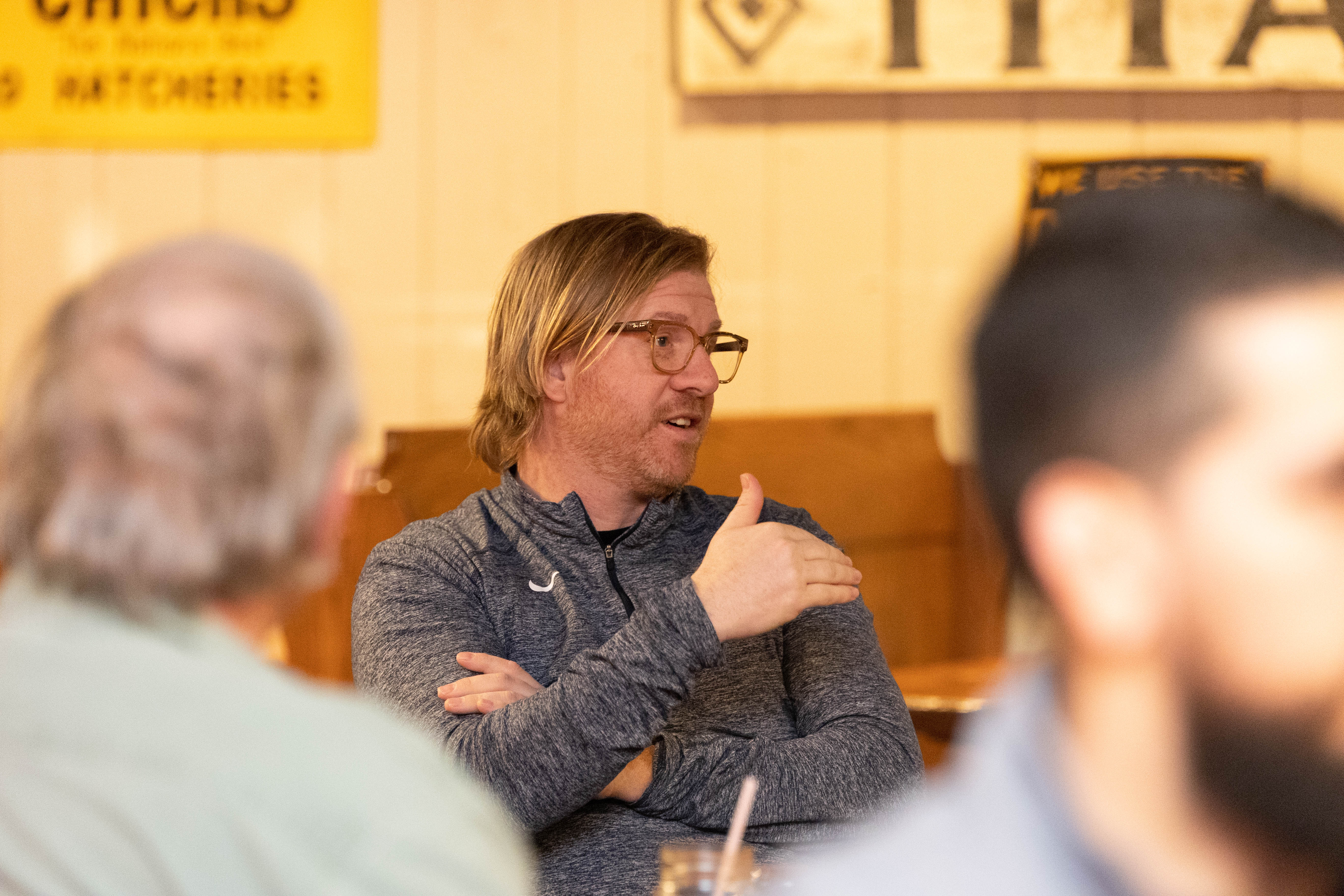
The tour is one of many ways the Iowa FFP, in partnership with the Iowa Wolves and ISA, is shrinking the divide between consumers and agriculture. As Iowa’s leading industry, agriculture is responsible for the locally grown foods that power life on and off the court. The collaboration brings the story of modern agriculture closer than ever for many.
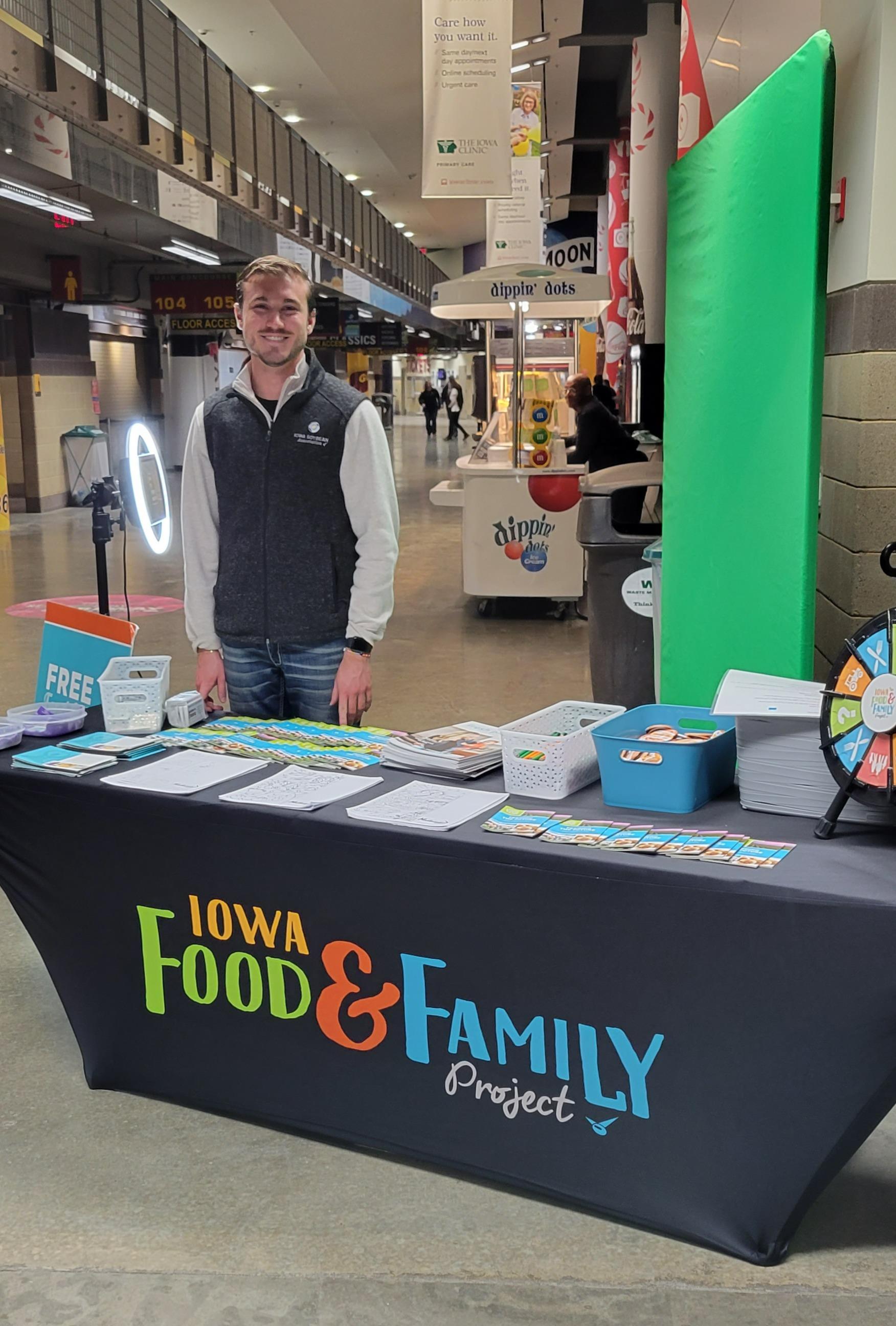
Attendees of the Iowa Wolves’ Country Night game on Feb. 4 were among the first to experience the full-court partnership. Visitors to an Iowa FFP display spun the wheel and answered ag trivia in exchange for prizes, posed in the photo booth and gave agriculture a “seal of approval” with colorful Iowa FFP temporary tattoos.
Iowa Wolves fans can enjoy an evening of agriculture on March 22, as the team joins Iowa FFP in celebrating National Ag Week (March 19-25) with festivities inside Wells Fargo Arena. To learn more, visit iowa.gleague.nba.com.
Please note, by clicking the above link, you’ll be leaving a partially funded checkoff site.